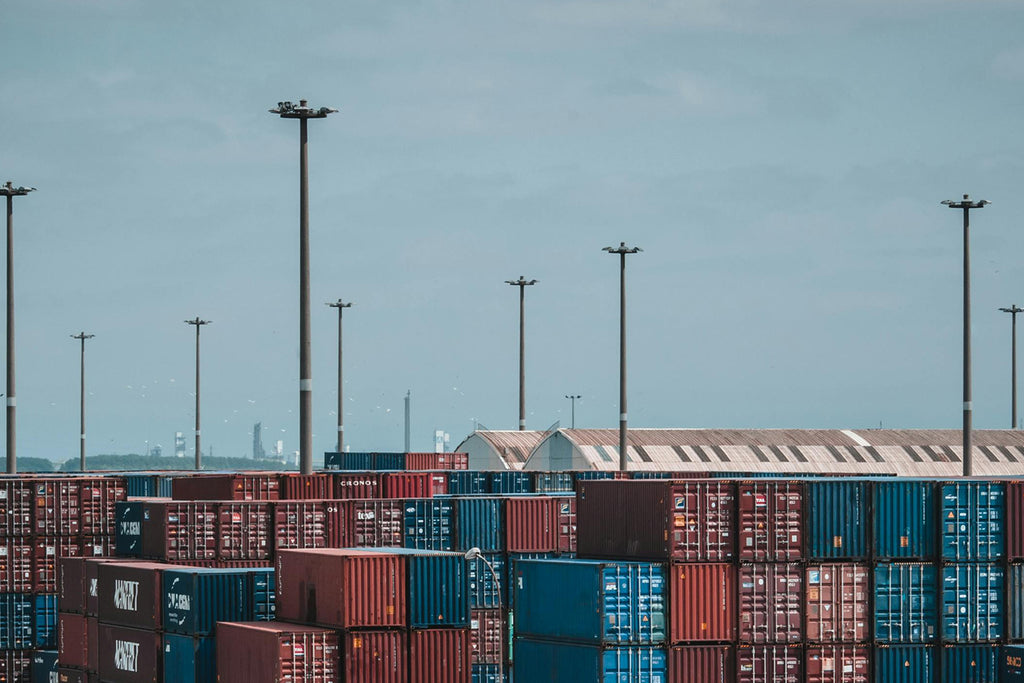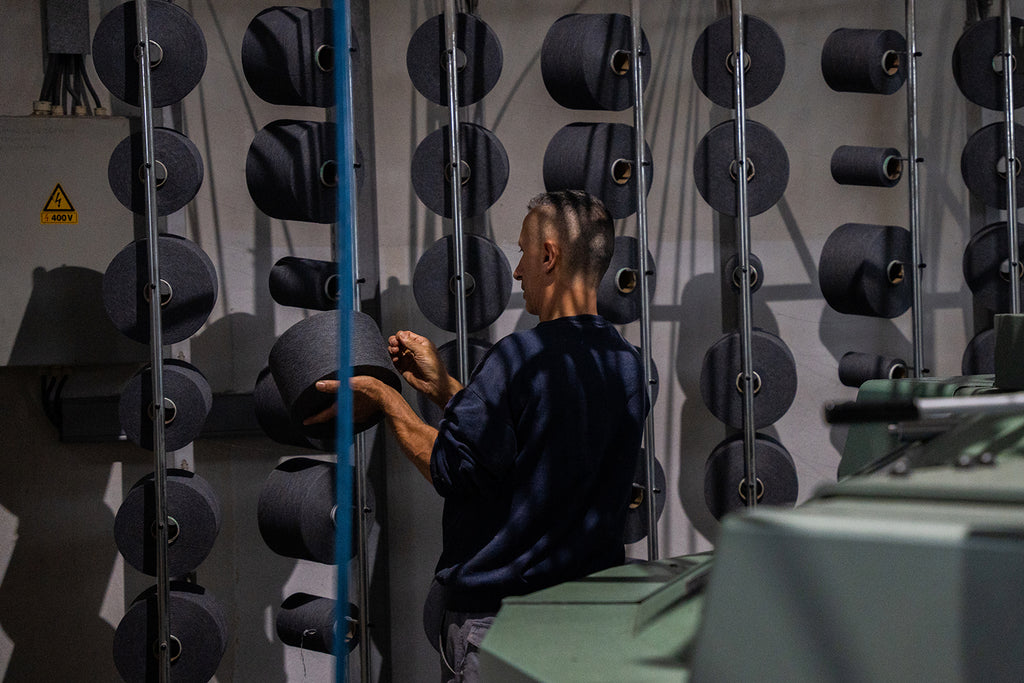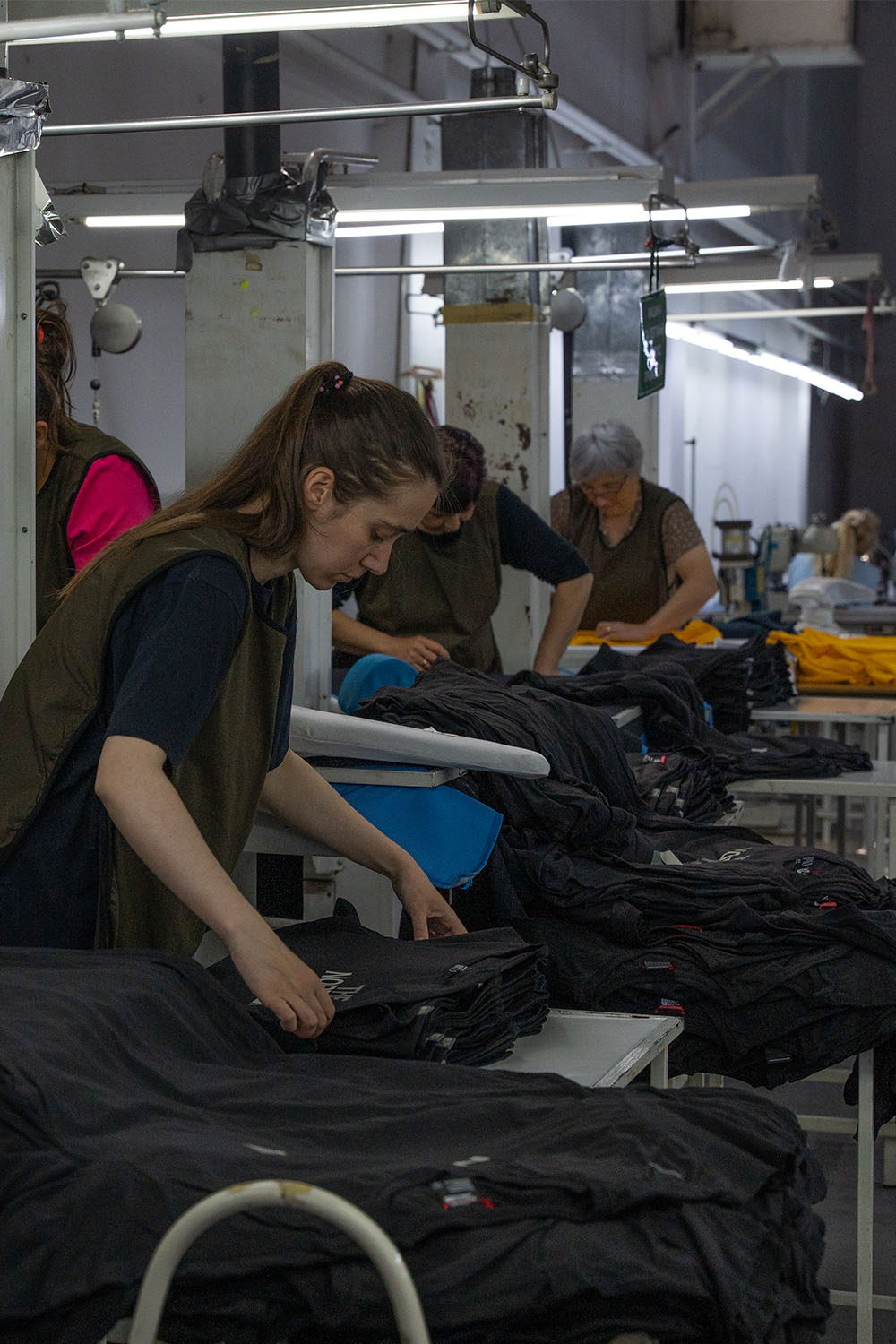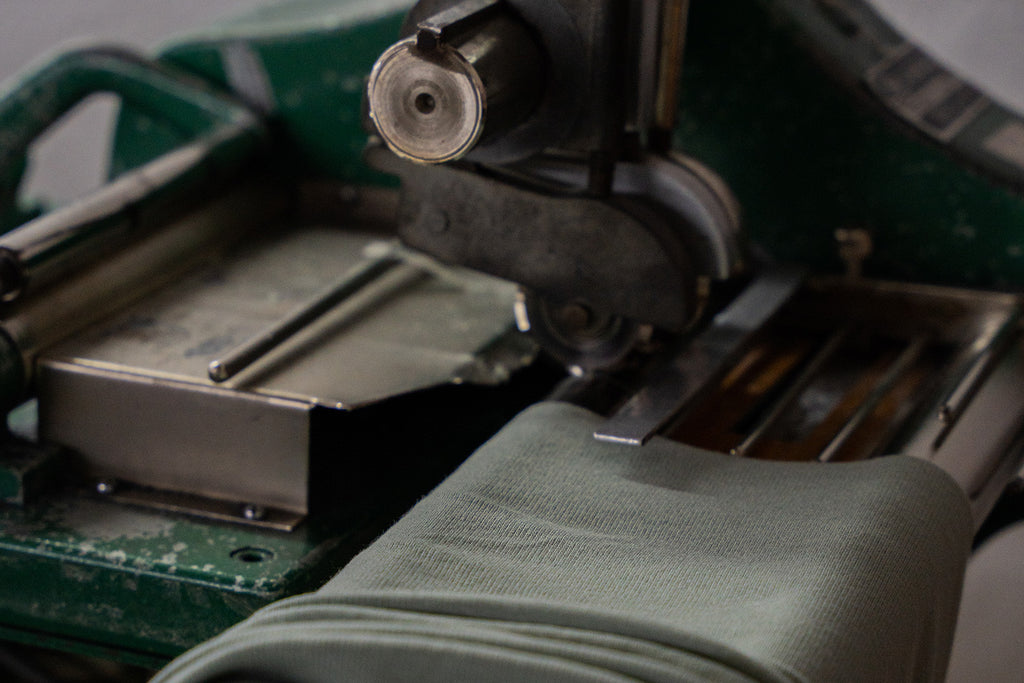INSPIRATION
A SELECTION OF ALL THINGS THAT INSPIRE US
TOPICS
The importance of local production in fashion.

"Local production" means manufacturing garments closer to where they will be sold or used, typically within the same country or region. For us, as a Europe-based sportswear brand, this means working with suppliers and manufacturers based in Europe rather than relying on overseas production. This approach contrasts with the traditional fashion supply chain where clothing is often produced in low-cost countries far from the customer and transported across long distances before reaching the market. Localizing production is a strategic choice that influences everything from environmental impact to human rights, flexibility and product quality.

02. Yarn production on a local scale
03. Boldwill production facility

The environmental impact of global shipping vs local production
Shipping raw materials and finished garments over long distances, especially by air or sea generates substantial greenhouse gas emissions. In global production models the carbon footprint of logistics can rival or even exceed that of the manufacturing itself. Add to that the need for extensive packaging and handling, and the environmental cost grows even further. Local production significantly reduces transport emissions and packaging waste. For instance, cottonproduced globally can also be sourced locally.
In Europe, countries such as Greece and Turkey can also supply cotton, minimizing environmental impact, compared to other countries. Combine this with the fact that in our case, Europe has way stricter environmental laws in regard to -for example- pollution and you have plenty of reasons why local production is better.

04. Protect nature through local production
In global supply chains, it is often difficult to ensure transparency. Limited visibility into factory conditions increases the risk of labor rights violations, including poor working environments, wage exploitation or even forced labor. This is particularly relevant in fast fashion and unregulated overseas manufacturing hubs.
Local production allows brands to uphold higher standards for human rights and environmental standards. With shorter distances and fewer intermediaries it's easier to build relationships with ethical manufacturers, visit facilities regularly and ensure compliance with European labor laws.

05. Quality control at Boldwill
How local production improves quality and reduces overproduction
Shorter supply chains provide better control over product quality and greater agility in the design process. If a prototype needs adjustment or if customer feedback indicates a change, local production allows for quick turnarounds, without waiting weeks for international shipping. This flexibility is particularly important in performance sportswear, where small changes can significantly impact function and fit. It also supports small-batch production, helping avoid the problem of overproduction, one of the fashion industry's largest sources of waste.
Choosing local production is not just about creating products closer to home, it's about supporting local industries, preserving craftsmanship and fostering innovation. By working with local manufacturers, brands invest in skilled labor and ensure that traditional techniques, which take years to master, are kept alive. Local production also helps strengthen regional economies by providing jobs and supporting local suppliers. At Boldwill, this approach allows us to stay closely connected to the people behind our products, ensuring fair treatment and consistent, high-quality standards. By supporting local industries, we contribute to a sustainable and ethical production process that benefits everyone involved, from the workers to the end consumer.

06. Sustainable activewear production
At our brand, we prioritize local production not only for its practical advantages, but because it reflects our values. By keeping our supply chain mostly within Europe we can ensure transparency, uphold ethical standards and maintain strong relationships with our production partners.
This approach enables us to work closely with our suppliers, visit them regularly and collaborate throughout the product development process. We stay agile, minimize environmental impact and deliver better products faster.
In a world where fast fashion prioritizes profit over people and the planet we choose a different path. Our commitment to local production is part of a larger mission, to create high-performance sportswear made with care, care for people, care for the planet and care for every detail in between.
